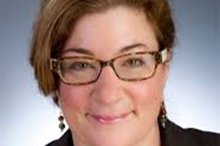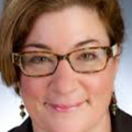

I am honored to be recognized as a community leader in precision medicine, and to help our society think about the relationship between precision medicine and health equity. There is great promise here, a healthier future for our county, our next generation, and generations to come. But there is also the potential to worsen our existing health disparities.
My research focuses on ensuring that all people are given the opportunity to be included in developing new therapies and treatments. This work started 11 years ago when I had a conversation with a patient—a conversation that still happens every day. A man with heart failure who was seeking treatment at our clinic asked if it was true that he would do better with a medication that was being promoted as more effective in Blacks. As a nurse practitioner I wanted to maintain the trust in our relationship; as a clinician and a scientist I needed to use the best evidence available. The answer was that I really didn’t know. We didn’t know about that medication, and we still don’t know about many of our medications and treatments today.
Five years ago, under a grant from the Robert Wood Johnson Nurse Faculty Scholar Program, my community partners and I started to build the capacity for our neighbors, friends and the community in Harlem to understand what we know so far about genomic medicine. We knew that speaking to communities of color about Precision Medicine would not be easy; but we also knew that it was critical. We started talking—in plain language—about what was coming down the pike: sequencing, biobanking, and the promise, possibilities and even problems of precision medicine. More importantly, we started listening – to people’s thoughts, dreams, fears, and frustrations. We tackled the difficult issues by holding discussions in community centers, churches, barbershops, and coffee shops. The community began talking about issues of privacy, ownership of DNA, confidentiality, risks of participation and risks of non-participation.
In 2012, we held a Genomic Health Fair in collaboration with our group, Communities of Harlem Health Revival. We offered walk-in hours where people could learn about what was being developed, and talk about what they were hearing and seeing in the news. We heard testimony from those who had participated, and discovered that most felt like they had made an important contribution to science, some felt used, and some wanted to participate but had never been asked. We held workshops in churches and developed a guide for faith-leaders to use when they are asked if their house of worship would like to participate in research.
Most recently, we have developed an animated graphic novel using President Obama’s State of the Union on Precision Medicine. We dramatized the stories of actual patients, created a set of characters for our novel that look like people from the community, and portrayed the questions that had been brought up in our focus groups. The graphic novel will help educate the community so that they can make informed decisions about research participation. We also explain that these are issues of ancestry, not race. But to understand these differences, we must find ways to enroll a wide range of participants from across the nation into the Precision Medicine Cohort. If we don’t, we won’t be able to filter out the noise of normal variation and identify the causes of disease.
We have the greatest of hope for precision medicine, but it will only achieve its promise if we advance science for all equally. This work continues that mission.
Dr. Elizabeth Gross Cohn is an Associate Professor of Nursing and Public Health and the Director of the Center for Health Innovation at Adelphi University.


